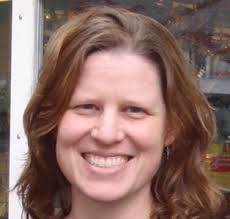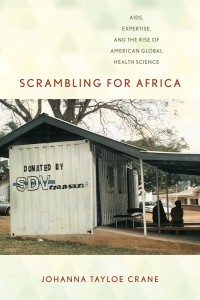Crane ’93 Writes Book About AIDS Research in Africa

Johanna Tayloe Crane ’93 is the author of a new study, Scrambling for Africa: AIDS, Expertise, and the Rise of American Global Health Science (Cornell University Press) which documents how and why Africa became a major hub of American HIV and AIDS research in recent years after having formerly been excluded from its benefits due to poverty and instability.

“American AIDS researchers became interested in working in Africa for two major reasons—one humanitarian, and one having more to do with scientific/professional motivations,” Crane said. “Once effective HIV treatment was discovered in the mid-1990s and the American epidemic began to come under control, many U.S. researchers became interested in using the knowledge they had gained fighting HIV in the United States to fight HIV in the part of the world that was hardest hit. That’s the humanitarian piece.
“In addition, once international programs finally began to fund free HIV treatment in Africa in the early 2000s, researchers were drawn there by the scientific opportunity to study huge numbers of patients about to receive their first antiretroviral treatment ever. This large number of ‘treatment naïve’ patients did not exist in the United States because people had been getting experimental treatment since the 1980s, and so working in Africa became very appealing. It’s this second factor that the book is more focused on, as well as the inherent tension between scientific ambition and humanitarian concern.”
Crane is an assistant professor in the School of Interdisciplinary Arts and Sciences of the University of Washington-Bothell. Though her interest in AIDS/HIV research and its impact in Africa has Wesleyan roots, you wouldn’t guess it by looking at her undergraduate transcript.
“I was an English major at Wesleyan, largely because I thought I wanted to be a writer,” she said. “It took me some time to figure out that fiction writing wasn’t really for me, but that I did love telling stories about the ‘real world.’ This is partly what led me to study anthropology, and to write ethnography (which we often call ‘thick description’). So I think l learned a great deal about writing at Wesleyan that fed into my effort to write what I hope is an engaging, accessible ethnography of the politics of global HIV research.”
During her undergrad years, Crane tried and failed to enroll in the then-popular Wesleyan course “AIDS and its Discourses.” Instead, she studied critical theory and postcolonial theory. Those lenses on to power and inequality influenced her path to studying global health inequalities.
“I first started working in the field of AIDS research post-Wes, in the late 1990s, studying HIV among homeless folks in San Francisco,” she said. “I started working in Uganda in 2003.”

